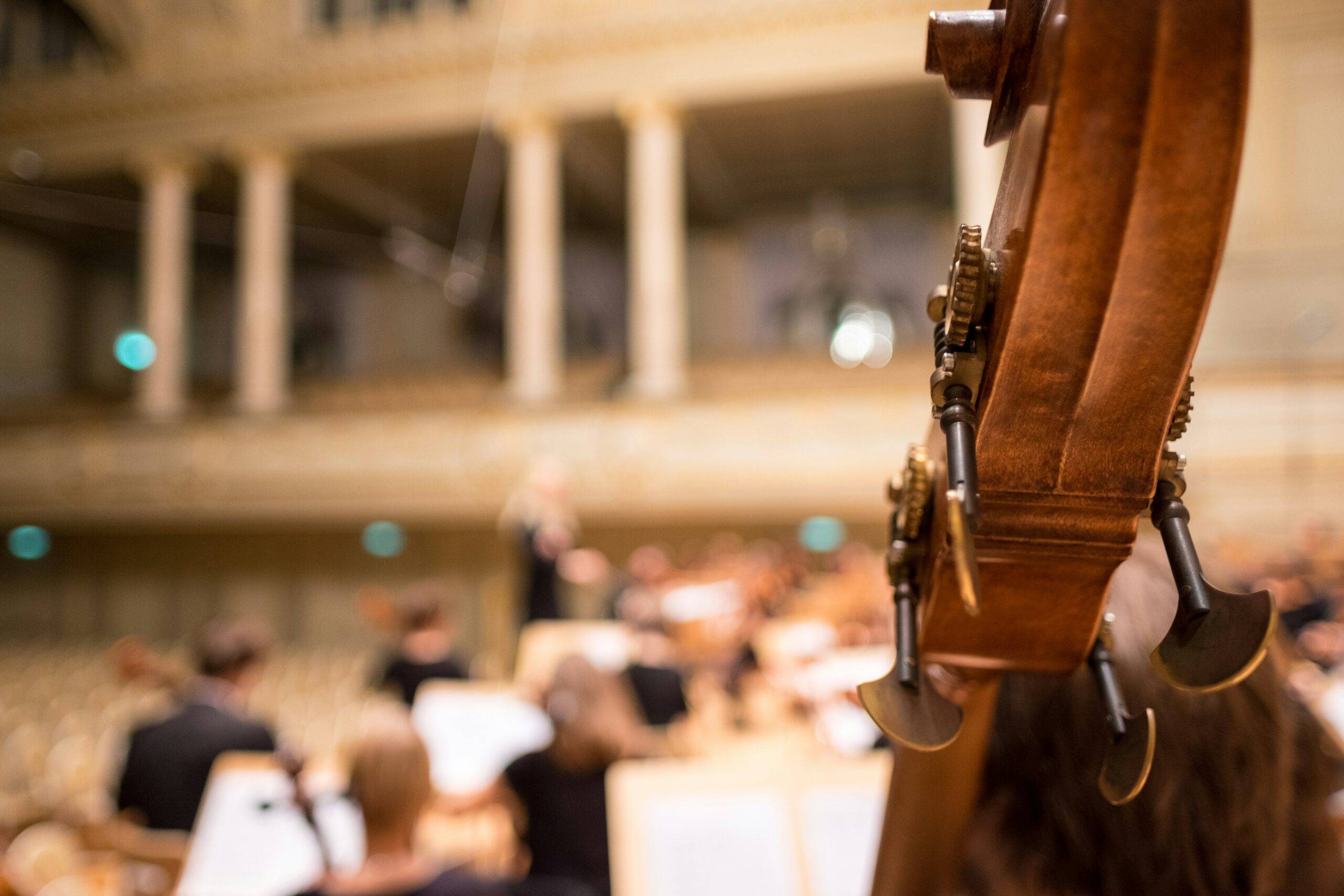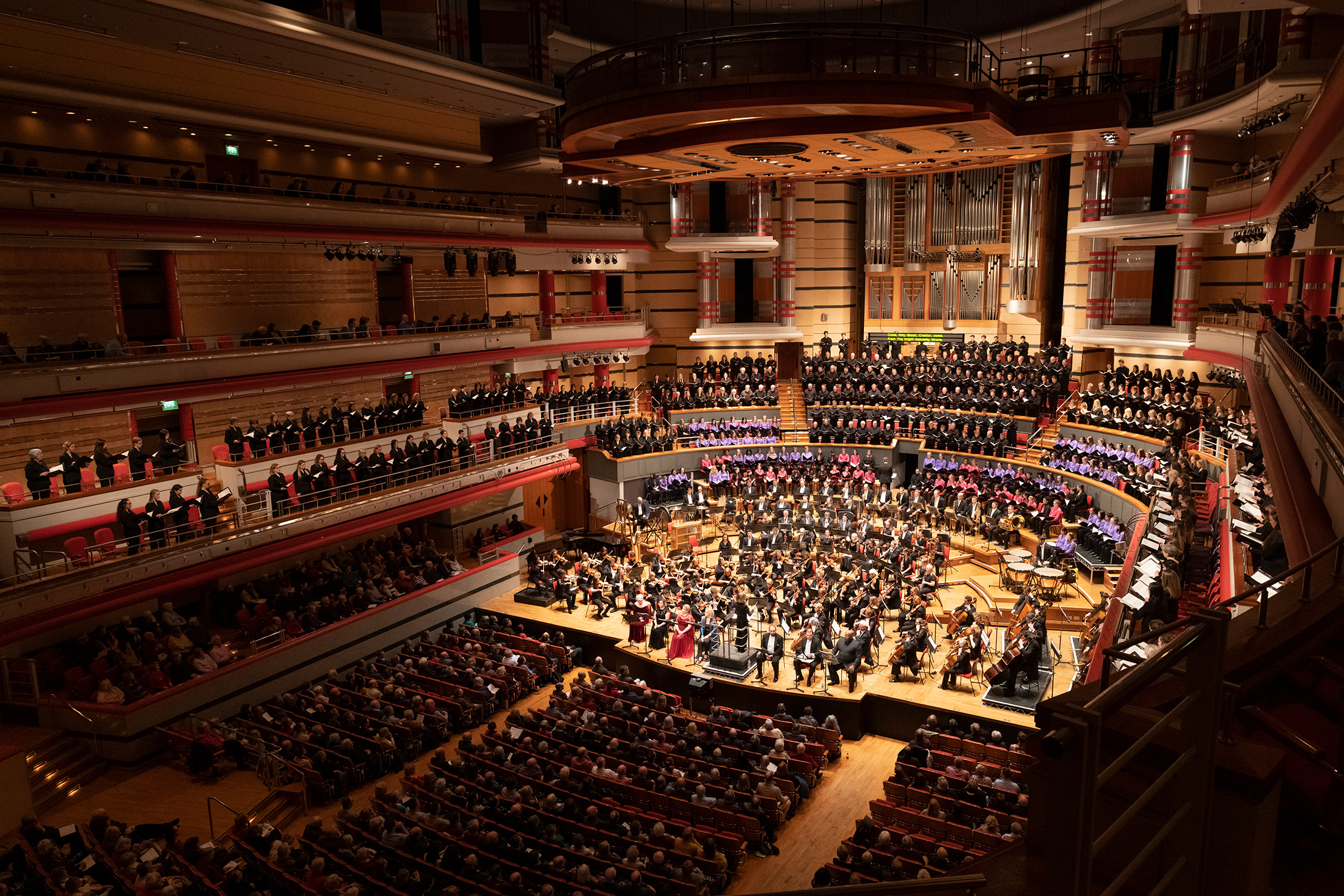Could a European plan provide a lifeline for some of the UK’s classical music institutions?
A confidential white paper commissioned by the European Broadcasting Union (EBU) has been leaked, revealing an ambitious plan to revitalise the UK’s classical music landscape over the next decade.
The white paper entitled ‘Orchestrating Change: Strategies for Attracting Gen Z to the World of Classical Music’ documents 5 years of extensive investigations, highlighting a growing appetite for classical music amongst Gen Z consumers, identifying opportunities to build a new generation of classical music lovers.
The confidential paper proposes a range of new broadcast formats built around classical music made for prime-time public service television across Europe. In pursuit of this, the paper recommends the wholesale acquisition of various orchestras, ensembles, and venues up and down the UK, facilitated by a lucrative partnership with a prominent conglomerate encompassing global construction, packaging, defence, and environmental commercial interests.
At the heart of the proposal is the creation of an amalgamated UK classical music performing entity consisting of multiple performing groups and venues across the nation. This unified “super-group” of orchestras and venues – the result of a partnership-driven acquisition – would be centrally managed, and be reflected nationally with a consistent UK-wide visual identity that subtly adapts according to the area of the UK the performers live and play.
Proponents of the plan believe that both the acquisition and centralised management approach would yield significant long-term cost reductions for the UK’s classical music institutions, effectively rescuing some organisations who faced further cuts in public funding.

Yet perhaps the most groundbreaking aspect of the proposal is the restructuring of concert programming, which would see the removal of artistic directors and the introduction of selected “audience councils” empowered to vote on desired works for concerts throughout the season. This system, aimed at addressing the issue of increasingly inflated salaries for artistic directors and ensuring more responsive programming that can adapt promptly to current events, is seen not only as a cost-neutralising opportunity but also a way of enhancing relevance. Additionally, the centrally managed arts organisation would introduce a pioneering ticket purchase system that prioritises affordability based on Council Tax bands. These measures, conceived by the authors of the White Paper, are viewed as innovative approaches to combating elitism in classical music.
Thoroughly Good has shared the report’s findings with UK orchestra executives, who are reportedly analysing the implications with keen interest.

The EBU, known for its successful expansion of events like the Eurovision Song Contest, aims to replicate this success in the classical music realm with a range of broadcast formats it plans to pilot in the UK before rolling out to the rest of Europe. Plans include introducing a competitive element to programming, with UK orchestras competing in live broadcasts throughout the summer. ITV and Channel 4 have expressed enthusiasm for the concept which would see weekend evenings taken up with round-the-UK performances of core repertoire voted on by viewers, audience members, record company executives and critics.
If the TV series materialises, the EBU intends to offer behind-the-scenes access to bloggers, influencers, and journalists, providing unprecedented insight into rehearsals, artists, and conductors leading up to performances.

Eurovision Song Contest commentators speculate that the EBU’s 10-year strategy for UK orchestras may pave the way for the reintroduction of live orchestras at the annual song competition. A Eurovision ‘journalist’ expressed enthusiasm, stating, “If this rumour holds true, we welcome the change with open arms. We’re tired of aspiring young singers claiming it’s their ‘lifelong dream’ to perform at Eurovision. Let them prove their mettle by singing alongside a live orchestra. That’ll separate the amateurs from the pros.”
Insiders have told Thoroughly Good that strategists within the EBU are frustrated by the leak, particularly the details around a purported deal between the EBU and the BBC to acquire all of the Corporation’s orchestral groups at a discounted rate.
The BBC has ’emphatically’ declined to comment. One insider who insisted on remaining anonymous reported her colleagues increasingly unmanageable frustration over the potential acquisition, in addition to the seeming unavailability of senior colleagues to discuss the wider implications. “It’s yet another shit show. The Controller of Radio 3’s door is locked and the Director of Music can’t be found anywhere.”
The EBU is said to be alarmed by the unauthorised disclosure of the White Paper and the identities of the organizations involved in the strategic partnership, fearing it could jeopardise its success. Thoroughly Good contacted two of the companies mentioned in the document for comment – Agrotech Sustainable Distribution and Intercontinental Rope Repurposing – but did not receive a response.
Despite the challenges, the proposal is poised to move forward as early as Autumn 2024, pending agreement from participating ensembles.
While administrative restructuring is expected to play a significant part of the acquisition, the EBU’s white paper recommends prioritising the retention of existing musicians contracts at the same time as developing decision-making and governance with ‘audience councils’.



